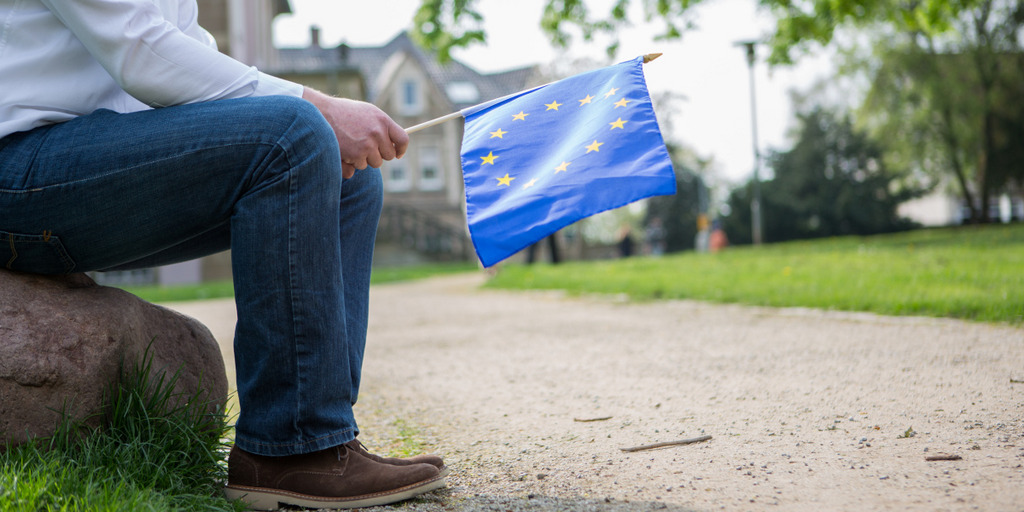On May 2, EU Budget Commissioner Günther Oettinger will present the Commission's proposal for the multiannual financial framework (MFR) for the 2021 to 2027 period. To date, the EU budget has been capped at approximately one percent of the EU-Gross National Income, and it entailed payments in the amount of 145 billion Euro in 2018.

Jan Voth
EU Budget: Why the new budget plan should urgently provide European added value
On May 2, the European Commission will present its proposal for the future EU budget. The first post-Brexit budget plan presents both risks and opportunities. The anachronistic budget structure of the EU can only be reformed if the EU succeeds in breaking through national egoism and in strengthening policy fields with pan-European added value.
Difficult starting position: Brexit and treaty infringements in Eastern Europe
This time, the starting position is even more difficult than it was for previous MFR negotiations. A line of conflict traditionally runs between net contributors and net recipients. Even if the net balance of own resources payments and reflows is hardly a sensible criterion for the benefits of EU membership, it continues to have immense importance to national governments as an indicator of the success of their own negotiating. This also explains why several Member States have provided uninterrupted political support to continuing agriculture and cohesion policies to the same extent as before. To date, the agriculture budget has been devouring almost 40 percent of the EU budget. An additional third of the budget is used for the balancing of poorer and richer regions as part of cohesion policies.
In addition to the traditional lines of conflict, we also face new challenges and divisions.
1. The exit of the United Kingdom, a net contributor, is ripping a huge hole – of roughly 13 billion Euro per year – in the budget. This exacerbates already existing conflicts over distribution.
2. The EU's conflict with Hungary and Poland regarding issues of the rule of law and separation of powers. This conflict also has a financial dimension, as providing financial benefits to Member States with serious shortcomings in terms of the rule of law is being called into question.
New budget: European added value instead of national egoism
Despite the difficulty of the starting position, the conflicts nevertheless offer a great opportunity for a budget in which national self-interests regarding the agriculture- and cohesion-related transfer policies could be dialled back in favour of the common interest of all Member States in the financing of genuine European tasks. EU Budget Commissioner Günther Oettinger has rightly put the highest emphasis on the criterion "European added value" as well as made this clear to all parties involved. In the future, the EU budget should focus on areas in which Europe can provide more benefits with the money of its taxpayers than the Member States can provide by themselves.
Our study ("How Europe can deliver") conducted in partnership with the Centre for European Economic Research (ZEW) explores which policy fields could offer this European added value and where the EU tasks should be reduced. The study employs a standardised, data-supported process in analysing eight policy fields, ranging from education to unemployment insurance.
Less money for agriculture policies – more for common asylum policies
The results turn out to be very different depending on the policy field. One unambiguous result is the recommendation for an expansion of European responsibility in terms of defence. In this case, owing to economies of scale, a European army could help to improve the ratio of deployable soldiers to total size of armed forces.
Regarding development aid, centralised European financing could help to resolve the fragmentation of the national projects as well as to increase Europe's influence.
The results likewise point to a significant European added value of EU-financed common asylum policies that promise cost advantages and an end to the "race to the bottom" in reception requirements.
In contrast, the study's findings point in the opposite direction when it comes to agriculture policy. In this case, it becomes clear that the centralised European subsidisation of farmers is extremely imprecise and therefore needlessly expensive, as it does not help the operations that are actually in need of protection in a targeted manner.
In recent months, Budget Commissioner Oettinger has been preparing the public for cutbacks in the fields of agriculture and cohesion policy in order to increase the scope for genuine European tasks in view of Brexit costs. The study lends support to this line of action.
"It is to be hoped that Günther Oettinger will ambitiously change the course of EU budgetary policy and reallocate funds from agriculture policy to the fields of migration, security and development policy."
Stefani Weiss, Europe expert of the Bertelsmann Stiftung
"If he does not succeed in changing the course with immense reform pressure, Europe will miss a historic opportunity to finally correct the anachronistic budget structure."



